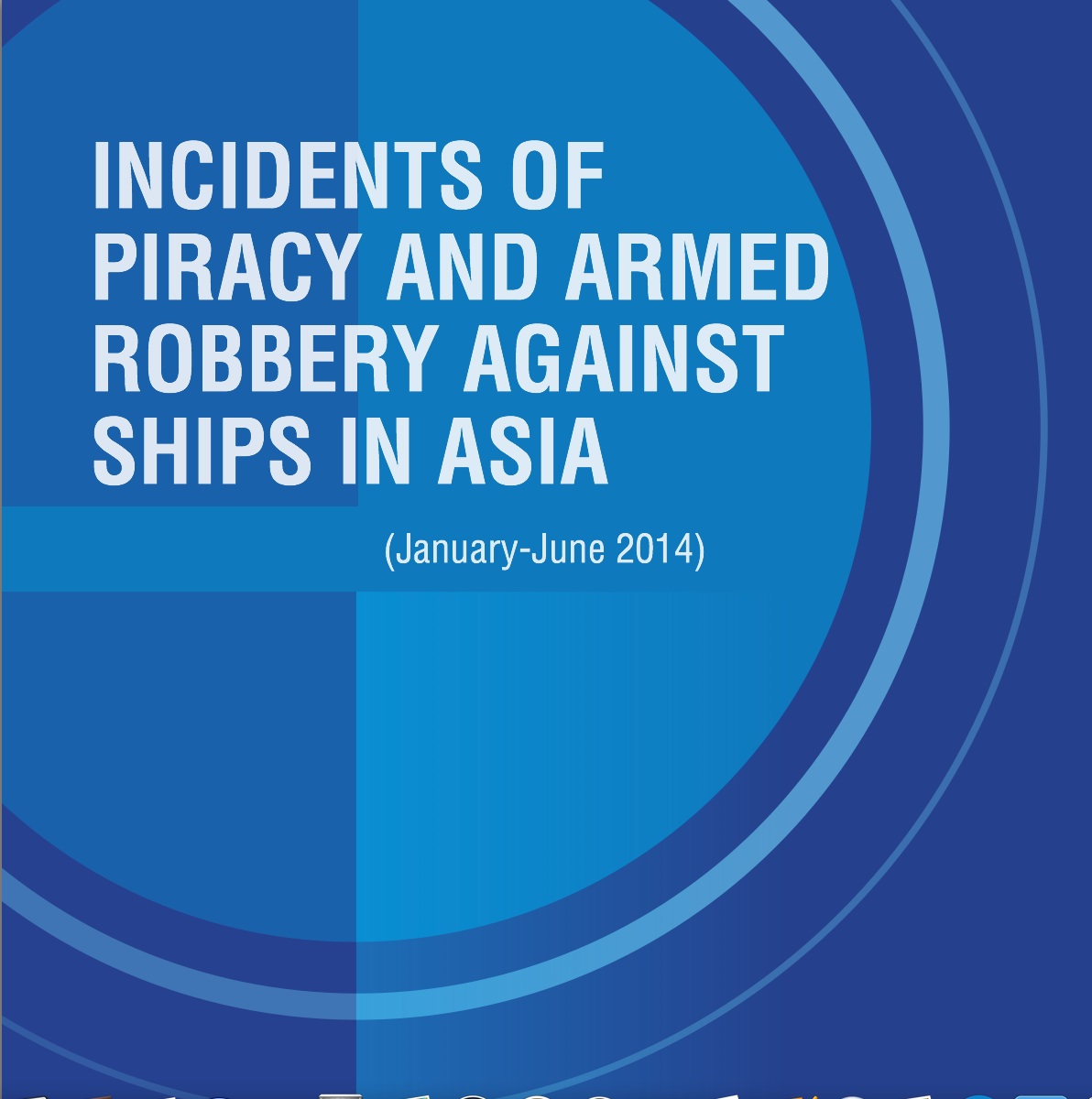Piracy & Armed Robbery Against Ships in Asia - ReCAAP Half Yearly Report 2014
A TOTAL of 73 incidents of piracy and armed robbery against ships were reported in Asia during January-June 2014, of which 18 were piracy incidents and 55 were armed robberies against ships. Notably, the number of incidents of armed robbery against ships was lowest during January-June 2014 compared to the same period of 2010-2013, and this was attributed to, amongst others, a decline in the number of incidents at ports and anchorages in Indonesia, states ReCAAP ISC.
Except for incidents involving the siphoning of fuel/oil from product/oil tankers which warrants careful monitoring and collective efforts by the shipping industry and authorities in addressing the situation; the overall significance level of incidents reported during January-June 2014 has stabilised and remains fairly consistent compared to the same period in past four years.
It is noted that the cooperative mechanism of the littoral States in information sharing and operational cooperation in responding to transnational maritime crime was demonstrated in the incident involving Ai Maru which was boarded by pirates on 14 Jun. Timely reporting by the ship owner enabled the ReCAAP ISC to alert the Focal Point of Singapore, the Information Fusion Centre (IFC) and the enforcement agency of Singapore who together with the regional maritime authorities from Malaysia, Singapore and Indonesia deployed their assets to the location of the incident.
Category 1 Incidents
Five Category 1 incidents were reported during January-June 2014, and all were incidents of siphoning of fuel/oil involving Sri Phangnga (17 Apr 14), Naniwa Maru No.1 (22 Apr 14), Orapin 4 (28 May 14), Budi Mesra Dua (7 Jun 14) and Ai Maru (14 Jun 14).
The Category 1 incidents reported during January-June 2014 were different from past years’ Category 1 incidents which were mostly hijacking of tug boats for resale to another buyer. Notably, siphoning of fuel/oil did not involve the hijacking of tankers, but the transfer of fuel/oil from the victim ship to another vessel. However, common to the hijacking of tug boats, pirates/robbers involved in siphoning were also armed with guns and knives, but their key target was the fuel/oil onboard the tankers. In all five incidents, the guns were not fired.
Characteristics of Incident
The proportion of incidents involving ships at anchor and at berth in Asia has decreased over the past three years, from 78% during January-June 2012 to 55% during the same period in 2014. These incidents were usually less significant (Category 3 incidents) and petty thefts.
This is attributed to the decline in number of incidents at the ports and anchorages in Indonesia. During January-June 2014, Indonesia reported a 50% decline in the number of incidents at their ports and anchorages compared to the same period in 2013. A total of 20 incidents were reported at the ports and anchorages in Indonesia during January-June 2014 compared to 41 incidents reported there during January- June 2013.
However, there has been an increase in incidents involving ships while underway in SOMS and SCS during January-June 2014 compared to the same period in 2013.
Modus Operandi
By and large, the pirates/robbers adopted quite similar modus operandi in terms of the composition of the pirate/robber group, the treatment of crew, the weapons used and the modes of boarding. Most groups comprised not less than five, the highest being 16 men in the incident involving Sri Phangnga. Of the 14 incidents, seven of them involved the pirates/robbers armed with handguns or pistols and knives or parangs (long knives). None of the handguns or pistols was discharged.
Except in the case involving Sri Phangnga where the master suffered minor injuries, the crew in other incidents were not harmed. They were threatened, tied and locked up. In majority of the reported incidents, the pirates/robbers boarded the tankers while underway, took over control of the tankers and transferred the oil/fuel onboard to a tanker or barge which came alongside. They destroyed the ship communication and navigational equipment to prevent the master and crew from contacting the authorities and the ship owners, and apart from siphoning fuel/oil, they also stole the ship’s cash and crew’s valuables and personal belongings.
Of the nine successful incidents, three of the ships had their names repainted over and renamed to mask their identities while transiting to the location for siphoning and while siphoning was carried out. Chemical tanker, Zafirah was reportedly renamed ‘MT SEAHORSE’ and her IMO number changed from ‘9016387’ to ‘9016081’, Danai 4 renamed DAN; and Orapin 4 renamed RAPI.
Download the Full Report HERE
 Subscribe to our newsletter. Receive a weekly round-up of all piracy-related & maritime situational awareness news.
Subscribe to our newsletter. Receive a weekly round-up of all piracy-related & maritime situational awareness news.
OCEANUSLive.org
Information, Security, Safety; Shared
Submitted by Team@oceanuslive.org